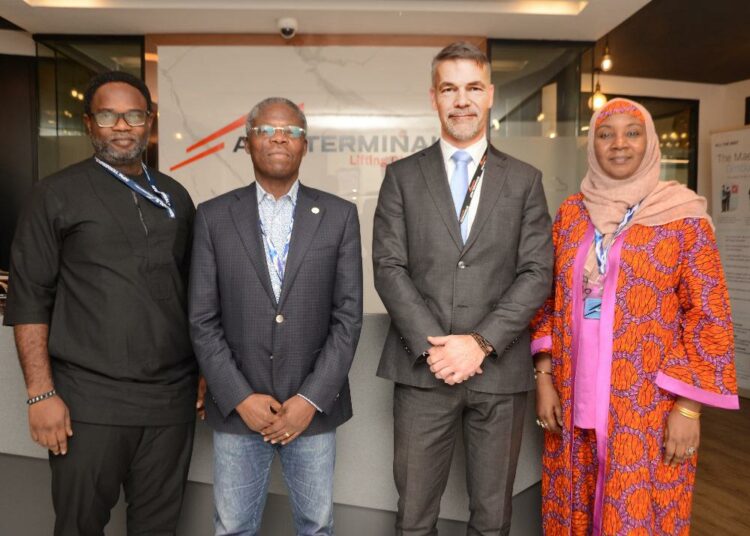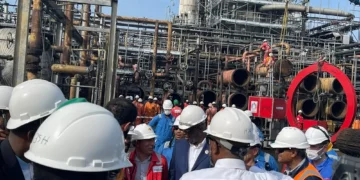The Bureau of Public Enterprises (BPE) has commended APM Terminals Nigeria for its commitment to the core objectives of Nigeria’s port concession program and its contributions to enhancing service delivery and operational efficiency at the nation’s seaports.
LEADERSHIP Friday reports that as a leading port operator, APM Terminals manages Nigeria’s largest container terminal at the Lagos Port Complex Apapa. It also owns and operates the West Africa Container Terminal (WACT) at Onne Port, Rivers State, as well as an Inland Container Terminal in Kano.
However, speaking during a working visit to APM Terminals Apapa, the director-general of BPE, Ayodeji Gbeleyi, praised the company’s operational excellence, particularly its commitment to safety and environmental standards.
He commended APM Terminals for its work environment and the dedication of its workforce, noting that the staff appeared passionate and excited about their roles.
He further reaffirmed the Federal Government’s support for APM Terminals, stating that the administration of President Bola Tinubu remains committed to making Nigeria a leading maritime hub in West and Central Africa.
Gbeleyi assured that the government would continue to support concessionaires like APM Terminals to ensure collaboration in achieving this vision.
The CEO of APM Terminals Nigeria, Frederik Klinke, highlighted the company’s significant investments in port infrastructure since acquiring the concession for the Apapa container terminal in 2006.
Klinke emphasised that the terminal now serves as a critical gateway for imports and exports in West
Africa, operating with a focus on safety, efficiency, and reliability.
He disclosed that APM Terminals has invested over $435 million in infrastructure and process improvements, including the implementation of an automated gating system to enhance security, yard expansion and modernisation, acquisition of state-of-the-art cargo handling equipment, and comprehensive training programs for its workforce in Apapa.
Klinke also reaffirmed APM Terminals’ commitment to supporting the Federal Government’s push to diversify Nigeria’s foreign exchange earnings through increased non-oil exports.
He explained that the company had expanded its yard capacity to accommodate the growing volume of
export cargo, a move that has improved efficiency, reduced waiting times, and streamlined operations.
Over the past four years, the terminal has recorded steady growth in non-oil export cargo, rising from 53,000 TEUs in 2020 to 94,000 TEUs in 2023. In addition, the terminal has enhanced its barge capacity, gate access, and dedicated export lanes to further shorten turnaround times for export containers.
Looking to the future, Klinke revealed that APM Terminals is planning an additional substantial investment to redevelop and enhance infrastructure at the Lagos Port Complex Apapa.
The CEO said the company is working closely with the government to proceed with its long-term expansion plans. He emphasised that APM Terminals is fully prepared to invest in the necessary infrastructure and remains aligned with the government in its efforts to promote national development goals.





